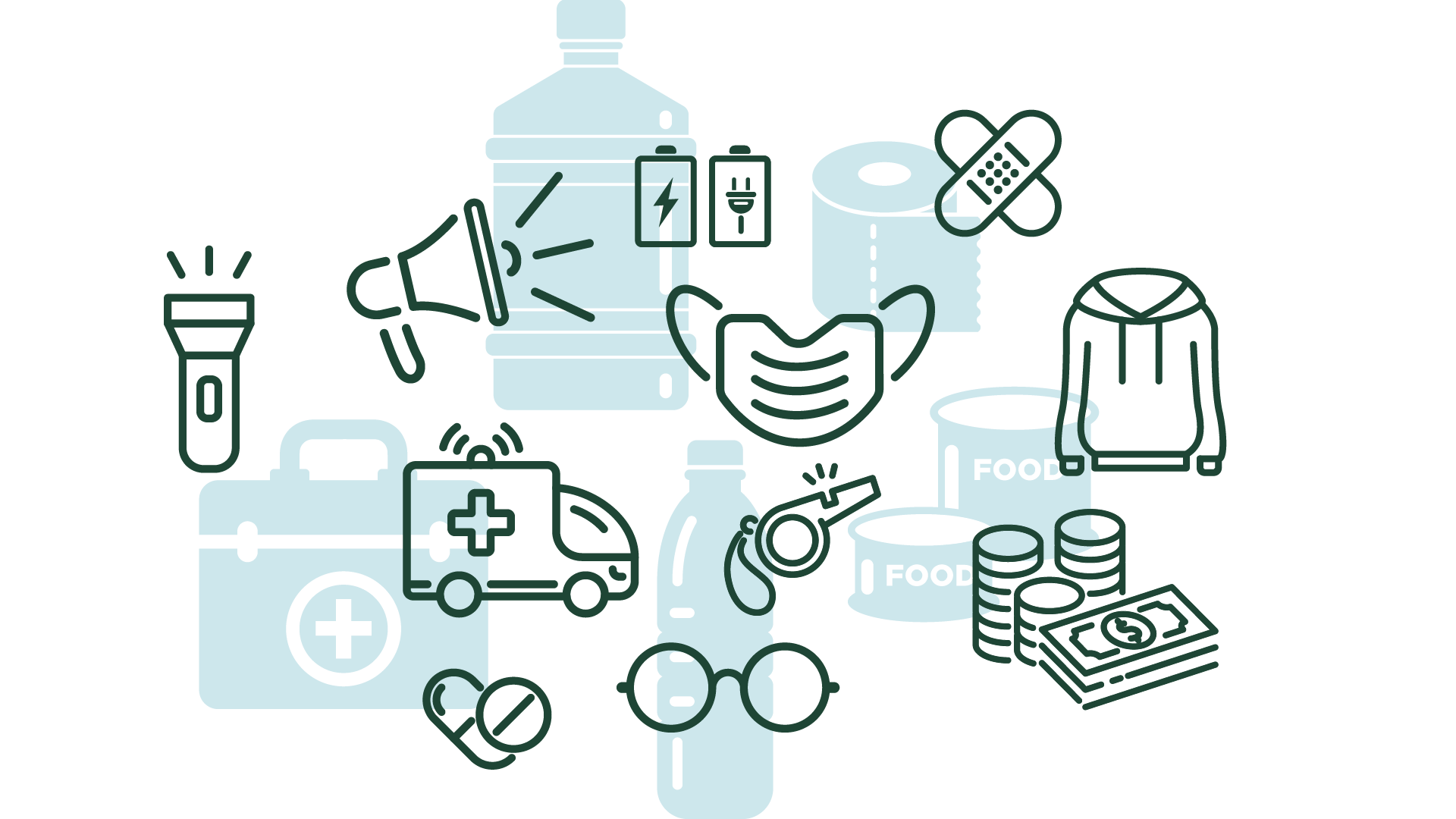
Are you ready for an emergency? Emergencies can happen at any time without warning. The good news is there are many actions we can each take to be prepared and stay safe.
On this page:
Exacerbated by climate change, natural disasters are becoming more frequent, longer and more extreme. UBC has emergency plans, and in an emergency event the university will take steps to protect the community.
However, we all have a responsibility to be prepared and self-sufficient for at least 72 hours after an emergency event. Being prepared will make you more comfortable and safer as the community recovers and services are restored—while taking the strain off our community and first responders.
How to prepare for an emergency
Get informed
- Download the UBC Safe App
- Register for the UBC Alert system—log in to the SSC and add your cell phone number to your contact details
- Follow key social media accounts such as:
- University of British Columbia – twitter | instagram
- Prepared BC – twitter
- Metro Vancouver – twitter | instagram
- Emergency Info BC – twitter
- Alert Ready – twitter
- Weather Network – twitter | instagram
- BC Storm Watch – twitter
- Prepare CRD – twitter
- Red Cross Canada – twitter | instagram
- Get Prepared – twitter
Make a plan
Taking down important phone numbers and other key information you may need in an emergency takes just a few minutes, but can make life after an emergency event much less stressful. Don’t count on your phone having all that info, as you may not be able to keep it charged.
- Download and print a plan template or pick one up at your front desk
- Fill it out
- Keep it in a safe place like your emergency kit
Download this template if you live in residence.
DOWNLOAD TEMPLATEDownload this template if you live in Acadia Park.
DOWNLOAD TEMPLATEMake or buy an emergency kit
Everyone who lives in residence should have an emergency kit. A backpack works well to hold everything you need in one place and can also serve as a grab and go bag if you need to evacuate.
Your emergency kit should include:
- Non perishable food for 72 hrs
- Bottles of water (~4L per day)
- Small first aid kit
- Prescription medication including extra pair of glasses or contact lenses
- Small flashlight with extra batteries
- Charger or battery pack for your phone/laptop
- Whistle
- Face mask
- Personal hygiene items (e.g., menstruation products, toiletries, etc.)
- Important documents like your emergency plan, passport, study permit, health card, etc.
- A bit of cash in small bills and coins, since ATMs and debit/credit terminals will be down if the power is out
- Seasonal clothing and footwear—sturdy footwear and weather resistant jacket